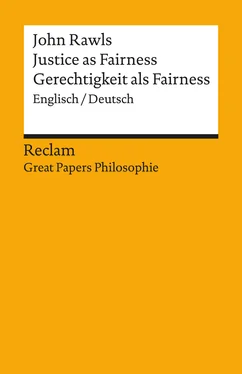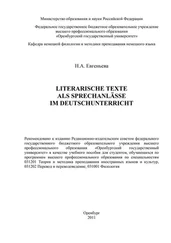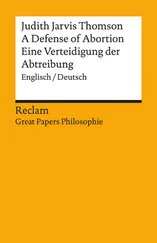John Rawls
Justice as Fairness
Gerechtigkeit als Fairness
Englisch / Deutsch
Übersetzt und herausgegeben von Corinna Mieth und Jacob Rosenthal
Reclam
2020 Philipp Reclam jun. Verlag GmbH, Siemensstraße 32, 71254 Ditzingen
Covergestaltung: Cornelia Feyll, Friedrich Forssman
Gesamtherstellung: Philipp Reclam jun. Verlag GmbH, Siemensstraße 32, 71254 Ditzingen
Made in Germany 2021
RECLAM ist eine eingetragene Marke der Philipp Reclam jun. GmbH & Co. KG, Stuttgart
ISBN 978-3-15-961716-9
ISBN der Buchausgabe 978-3-15-019586-4
www.reclam.de
[5]Justice as Fairness Gerechtigkeit als Fairness
1. It might seem at first sight that the concepts of justice and fairness are the same, and that there is no reason to distinguish them, or to say that one is more fundamental than the other. I think that this impression is mistaken. In this paper I wish to show that the fundamental idea in the concept of justice is fairness; and I wish to offer an analysis of the concept of justice from this point of view. To bring out the force of this claim, and the analysis based upon it, I shall then argue that it is this aspect of justice for which utilitarianism, in its classical form, is unable to account, but which is expressed, even if misleadingly, by the idea of the social contract.
To start with I shall develop a particular conception of justice by stating and commenting upon two principles which specify it, and by considering the circumstances and conditions under which they may be thought to arise. The principles defining this conception, and the conception itself, are, of course, familiar. It may be possible, however, by using the notion of fairness as a framework, to assemble and to look at them in a new way. Before stating this conception, [8]however, the following preliminary matters should be kept in mind.
Throughout I consider justice only as a virtue of social institutions, or what I shall call practices.2 The principles of justice are regarded as formulating restrictions as to how practices may define positions and offices, and assign thereto powers and liabilities, rights and duties. Justice as a virtue of particular actions or of [165] persons I do not take up at all. It is important to distinguish these various subjects of justice, since the meaning of the concept varies according to whether it is applied to practices, particular actions, or persons. These meanings are, indeed, connected, but they are not identical. I shall confine my discussion to the sense of justice as applied to practices, since this sense is the basic one. Once it is understood, the other senses should go quite easily.
[10]Justice is to be understood in its customary sense as representing but one of the many virtues of social institutions, for these may be antiquated, inefficient, degrading, or any number of other things, without being unjust. Justice is not to be confused with an all-inclusive vision of a good society; it is only one part of any such conception. It is important, for example, to distinguish that sense of equality which is an aspect of the concept of justice from that sense of equality which belongs to a more comprehensive social ideal. There may well be inequalities which one concedes are just, or at least not unjust, but which, nevertheless, one wishes, on other grounds, to do away with. I shall focus attention, then, on the usual sense of justice in which it is essentially the elimination of arbitrary distinctions and the establishment, within the structure of a practice, of a proper balance between competing claims.
Finally, there is no need to consider the principles discussed below as the principles of justice. For the moment it is sufficient that they are typical of a family of principles normally associated with the concept of justice. The way in which the principles of this family resemble one another, as shown by the background against which they may be thought to arise, will be made clear by the whole of the subsequent argument.
2. The conception of justice which I want to develop may be stated in the form of two principles as follows: first, each [12]person participating in a practice, or affected by it, has an equal right to the most extensive liberty compatible with a like liberty for all; and second, inequalities are arbitrary unless it is reasonable to expect that they will work out for everyone’s advantage, and provided the positions and offices to which they attach, or from which they may be gained, are open to all. These principles [166] express justice as a complex of three ideas: liberty, equality, and reward for services contributing to the common good.3
The term “person” is to be construed variously depending on the circumstances. On some occasions it will mean [14]human individuals, but in others it may refer to nations, provinces, business firms, churches, teams, and so on. The principles of justice apply in all these instances, although there is a certain logical priority to the case of human individuals. As I shall use the term “person,” it will be ambiguous in the manner indicated.
The first principle holds, of course, only if other things are equal: that is, while there must always be a justification for departing from the initial position of equal liberty (which is defined by the pattern of rights and duties, powers and liabilities, established by a practice), and the burden of proof is placed on him who would depart from it, nevertheless, there can be, and often there is, a justification for doing so. Now, that similar particular cases, as defined by a practice, should be treated similarly as they arise, is part of the very concept of a practice; it is involved in the notion of an activity in accordance with rules.4 The first principle expresses an analogous conception, but as applied to the structure of practices themselves. It holds, for example, that there is a presumption against the distinctions and classifications made by legal systems and other practices to the extent that they infringe on the original and equal [16]liberty of [167] the persons participating in them. The second principle defines how this presumption may be rebutted.
It might be argued at this point that justice requires only an equal liberty. If, however, a greater liberty were possible for all without loss or conflict, then it would be irrational to settle on a lesser liberty. There is no reason for circumscribing rights unless their exercise would be incompatible, or would render the practice defining them less effective. Therefore no serious distortion of the concept of justice is likely to follow from including within it the concept of the greatest equal liberty.
The second principle defines what sorts of inequalities are permissible; it specifies how the presumption laid down by the first principle may be put aside. Now by inequalities it is best to understand not any differences between offices and positions, but differences in the benefits and burdens attached to them either directly or indirectly, such as prestige and wealth, or liability to taxation and compulsory services. Players in a game do not protest against there being different positions, such as batter, pitcher, catcher, and the like, nor to there being various privileges and powers as specified by the rules; nor do the citizens of a country object to there being the different offices of government such as president, senator, governor, judge, and so on, each with their special rights and duties. It is not differences of this kind that are normally thought of as inequalities, but differences in the resulting distribution established by a [18]practice, or made possible by it, of the things men strive to attain or avoid. Thus they may complain about the pattern of honors and rewards set up by a practice (e.g., the privileges and salaries of government officials) or they may object to the distribution of power and wealth which results from the various ways in which men avail themselves of the opportunities allowed by it (e.g., the concentration of wealth which may develop in a free price system allowing large entrepreneurial or speculative gains).
Читать дальше












